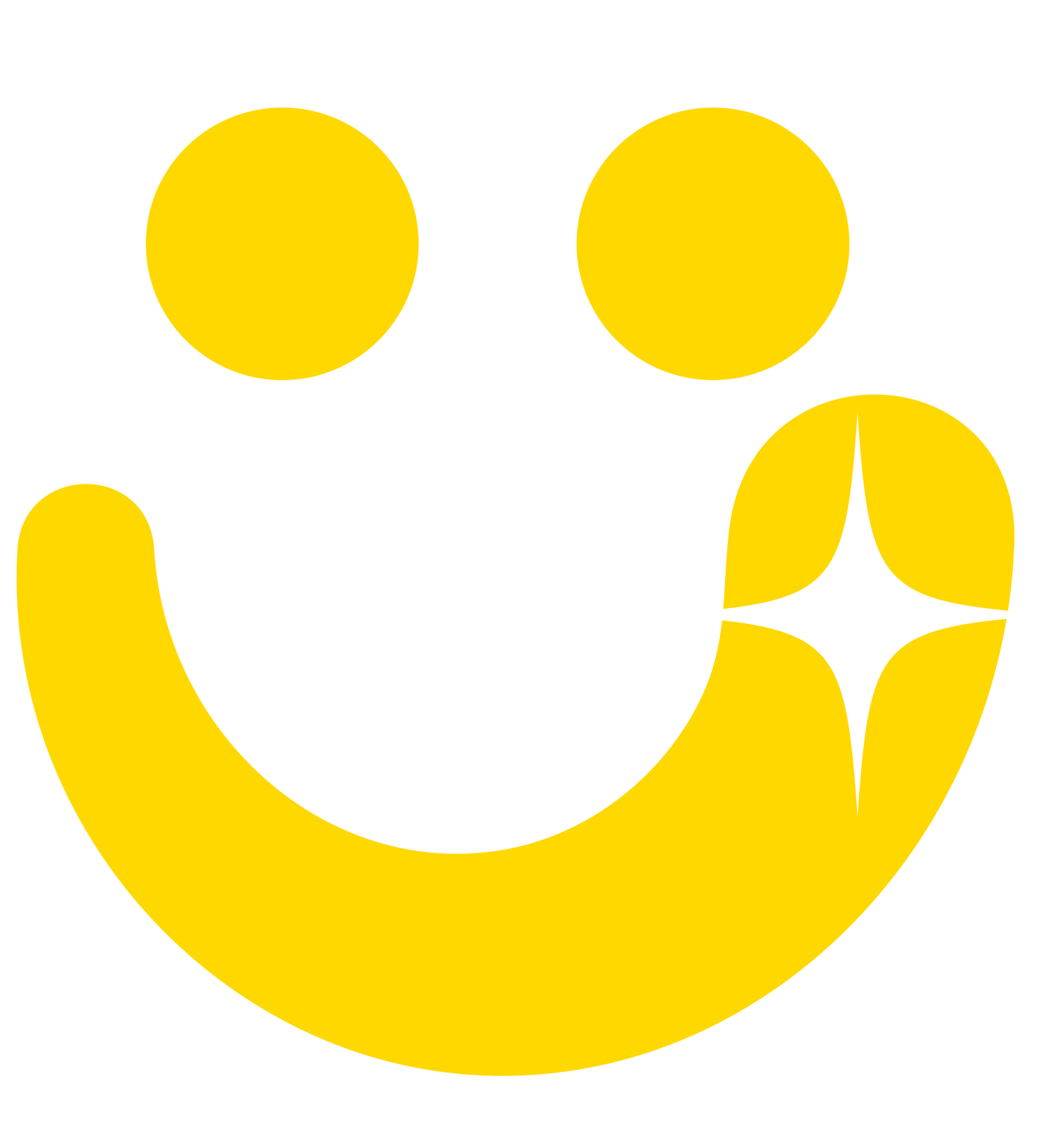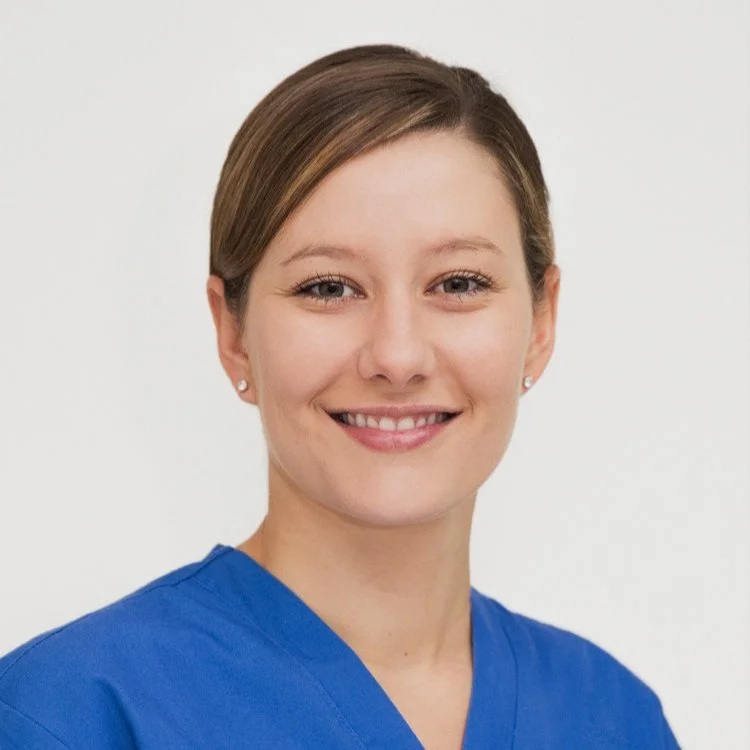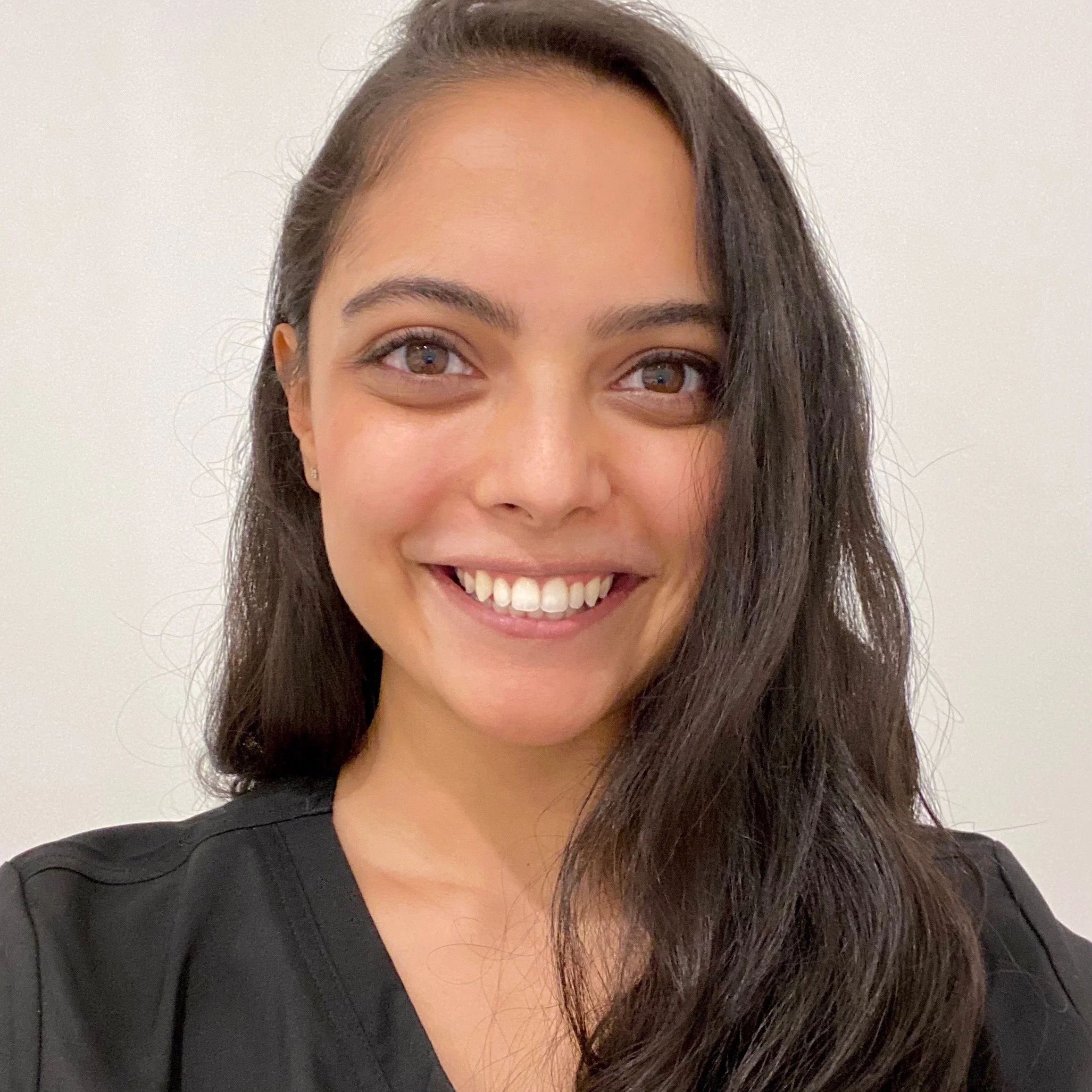
Hello!
Welcome to Cremorne Paediatric Dentistry
We are a specialist children’s dentist in the North Shore of Sydney. Our Practice offers a comprehensive range of dental services to children and their families. Although our main role involves dental care, our mission is to offer the best and most up-to-date dental services for children so that they are able to have a clean start in life.

Smile Brightly
Childhood has been identified as the most important period in a person’s dental life. We have found that even when children have been to the dentist before, they often do not know what to expect when they come to see us.
On the first visit to Cremorne Paediatric Dentistry, we provide your child a thorough clinical examination with intra-oral photos, digital radiographs as needed and diagnose risk factors contributing to your child's dental issues, including dietary advice and habits as well as brushing instructions. If needed, we arrange for your child to have an orthodontic consultation.
Cremorne Paediatric Dentistry offers dentistry for children like no other, and whether it is from a dental check-up, broken tooth, dental trauma or interceptive treatment, we are positive that we can support the needs of your child and give them the best care needed.


Our Services
-
At Cremorne Paediatric Dentistry we evaluate each patient individually in order to determine which type is the appropriate filling for our client. We also avoid the use of Mercury fillings that may cause any damage or be a risk for our children. There are many types of fillings available in the market. Each of them suitable for different holes or cavities.
There are several reasons why our specialist may advise that a tooth could be removed among them:
A misshapen tooth
Issues with the dental roots
A decayed tooth
A trauma
The removal of a tooth is known as “extraction”. Also, the complexity of the dental problem may lead to a surgically or non-surgically operation where a mild anaesthesia will provide the comfort and tranquility of the little patient throughout the procedure.
We mostly work with Composite White fillings, an advanced dental material that allows match the natural color of the patient teeth with a life span of 6 to 12 years.
-
Children will find a way to injure themselves despite our best preventative measures as parents. Some orofacial injuries are serious and some are nothing to worry about. How do you tell? Well, here are some guidelines.
If there is lots of blood, don’t panic. Any injury to the mouth bleeds a lot. Check out the situation; hold a cloth (if you can) with pressure to slow the bleeding. Most bleeding stops within 10 -15 minutes whether you do anything or not. First look and see if there are facial cuts or lacerations, fear of a broken jaw, possible head trauma causing loss of consciousness (concussion), multiple knocked out and displaced teeth (an oral surgeon may need to see you at the hospital), or if you just are not too sure, then you need to go to the ER. They can stitch up any facial lacerations and take major X-Rays to check all that other stuff.
Now, if you don’t have those bad things, you still might have a scary mess to deal with. If you go to the ER, you are likely to sit there for two hours and then they will call your dentist anyway. You can call your dentist first and he/she may be able to save you the trip to the ER.
If there is a broken tooth, the ER is not likely to be able to do much. If a tooth is knocked out, and if it is a permanent tooth, you need to get the tooth back in soon as possible, your dentist can help. The ER can put a knocked out tooth back in too, but you still may need a dentist to splint the tooth, so you may want to call the dentist first. If the knocked out tooth is a baby tooth, just leave it out and put it under their pillow. A baby tooth can be intruded (pushed up into the gums) where it is difficult to see. Sometimes it can re-erupt on it’s own, but still may need to be removed or need other longer term treatments. If your child is in braces and a wire breaks, call your paediatric dentist or orthodontist.
-
The use of sedation in Paediatric dentistry is a common way of delivering dental care in a compassionate and appropriate manner for young children.
There are many reasons why these services are provided and the use of oral sedatives, medications and/or the use of nitrous oxide sedation (happy gas) are the two most common forms of sedation in paediatric dentistry.
However, there are other parts of sedation which include conscious sedation, deep sedation as well as general anaesthesia.
General anaesthesia means that your child is fully asleep. Due to the increased demands in safely monitoring for such a procedure, this anaesthetic is carried out in a hospital environment as a day-stay procedure.
Children with airway problems including sleep apnoea, loud snoring, large tonsils, adenoids, retruded (small mandibles) or children with obesity have an increased risk of side effects during conscious sedation. Children below 24 months of age also have a higher risk to sedation in a dentist chair. Consequently, some of these children are better treated under general anaesthesia.
Fasting is an important part of dental sedation. Certain foods may alter your child’s reaction to conscious sedation procedures. This food may ‘compete’ with the sedative agent being administered, and delay/alter the desired effect. In the case of general anaesthesia, not fasting may compromise and endanger the recovery of your child post-operatively.
Children easily perceive anxiety on others (especially from anxious parents). Please assist us by reassuring your child pre- and post- operatively. Do not mention words such as needle, pain, injection, etc… The dentist will explain your child step by step on the day of appointment.
Numbness of the mouth, especially a lower lip can be an unusual experience for many children. Please remind your child not to bite or pinch the numb lip (or tongue). In the event that your child does bite the lip/tongue, an ulcer will develop and this should heal on its own in 7-10 days.
Side effects of oral sedatives. The “angry child syndrome” is a rare side effect that is self-limiting once the drug wears off. Depending on the severity of this reaction, treatment may be abandoned.
Please do not bring other siblings or children at the sedation appointment. Your sedated child will require your full attention. Please also be aware that your child will require close supervision after the procedure (conscious sedation & general anaesthesia). Avoid outdoor activities (e.g. running around or swimming) on this particular day.
Sedation item numbers 927, 943 & 949. These numbers denote the need for either conscious sedation (927 & 943) or general anaesthesia (949). Unfortunately, private health funds choose to rebate poorly or in some cases not at all. As per the Australian Dental Association’s dental glossary of term, by law, we do need to include this item number and it attracts fees.
Your contract with the health fund is between you and the fund. It remains separate from the contract you have with your dentist.
Dental treatment involving fillings and simple tooth removal can often be carried out using injections to numb the child’s mouth. It is also possible to add sedation, which makes the child feel drowsy, and helps to relax children who are anxious or afraid.
For some children however, especially the very young, a general anaesthetic may be the only option. You may have some concerns and questions about general and the following information is designed to help you.
If you would like further information then please ask our dentist, nurses and your anaesthetists.
-
Autism
All children should start visiting the dentist as soon as the teeth appear in the mouth – so from 6 months of age onwards. Some parents are surprised at this! It is important to begin visiting the dentist early so that practical help and advice can be given to you on how to prevent your child’s teeth from developing decay. It also helps everyone get used to the experience so that it becomes routine.
Young children should be encouraged to brush their own teeth. However, the reality of the situation is that most children under 6 years of age do not have the required manual dexterity to effectively remove the plaque from their own teeth. Children with autism may have additional problems with motor and perception skills which may make this extremely difficult.
Parents should let their child brush initially but then ‘finish off’ the process to ensure that the plaque is brushed off the teeth. Ordinary (manual) toothbrushes are just as effective at cleaning children’s teeth as electric ones. Many children with autism do not like the vibration associated with electric brushes whilst others love them – it’s all a matter of personal preference!
Information as found on (ambitiousaboutautism.org.uk)
-
What is Teething?
For years many thought that teething caused fever and general sickness. Teething has been blamed for many things! Research into the problems of teething has shown that some children become irritable, have increased drooling and sometimes a facial rash. However, for most children the effect of teething is teeth! Teething is a normal part of development. If your child has a high temperature that worries you, it is unlikely to be caused by teething and you should consult your physician.
Many remedies have been suggested over the years. There are non medical things that can help. Teething rings have been found to be helpful for some babies. The biting pressure seems to relieve some discomfort especially if the teething ring is chilled. We generally do not recommend pain relief tablets. The treatment can be managed by local measures. For example, special local anaesthetic medicines are available to be placed on sore gum areas. Only use medicines intended for this purpose should be used.
Why are baby teeth so important?
Many parents have been led to believe that baby teeth don’t need to be restored if affected by decay. Yes, these teeth will eventually fall out. However, the average age for a child’s first primary tooth to fall out is 6-8 years of age and the last one between 11-13 years of age. If a primary tooth has been affected by decay and not treated properly it can result in the damage of a permanent tooth. Primary teeth play a vital role in your child’s growth and development. These teeth act as a guide for the permanent teeth to come into the mouth in the best possible position. If a tooth is prematurely lost before the permanent tooth is ready to come in, the nearby teeth can tip or move into the vacant space. When this happens, the permanent teeth may come in malpositioned.
How could I prevent decay caused by nursing?
Avoid nursing children to sleep or putting anything other than water in their bed-time bottle. Also, learn the proper way to brush and floss your child’s teeth. Take your child to a paediatric dentist regularly to have his/her teeth and gums checked. The first dental visit should be scheduled by your child’s first birthday.
When is the appropriate time to give up the bottle?
For those babies not being breast fed, there is general agreement that around one year of age is a good time to wean baby from the bottle. Paediatric dentists like to see children give up bottles as soon as possible. That is because they see an alarming number of toddlers with Nursing Bottle Decay. This type of decay, which begins on the front teeth, is only seen in toddlers. It results from prolonged use of a milk or sweetened liquid bottle that is put into bed with the baby.
Weaning from the bottle seems to follow two paths. The first is stopping the bottle suddenly. It is a “cold turkey” approach. The second method is a gradual reduction in the usage of the bottle. Reduction usually begins during the day when baby is able to drink from a cup. The last and most difficult bottle to be discontinued is the bottle before bedtime.
How could I deal with my child pacifier and/or thumb sucking?
Sucking is normal for babies and young children. Thumbsucking habits are usually established by three months of age. Some children have the need to “suckle” more than others. Frequent use of a pacifier or thumb can create a number of problems such as an anterior open bite (front teeth do not meet), palatal changes and tongue protrusive posturing (tongue thrusting). Although these conditions can be corrected through orthodontics and/or surgical procedures in the future, early intervention is recommended. Pacifiers should be discontinued by 2-3 years of age. If your child has a thumbsucking habit, begin to encourage discontinuation at 4-6 years of age. Your paediatric dentist will work with you and your child to develop a positive reinforcement reward system to help them quit.
What is the best way to clean a baby’s mouth?
Different methods have been recommended. The popular technique nowadays is to use a clean, small gauze pad. If non-sterile ones are purchased they are much less expensive. Alternately, a clean dry wash cloth can be used. The teeth and gums are firmly wiped to remove liquid and food debris. This is done before bedtime. Once the child has back teeth, a small, soft toothbrush can be used to clean the grooves on the chewing surfaces of the molars.
When should I start brushing my child’s teeth?
As soon as your child’s first tooth appears, begin using a soft-bristled toothbrush once in the morning after breakfast, before naps and most importantly at night before your child goes to bed. Use only a tiny bit of toothpaste, a pea-sized amount is sufficient and will not be harmful if swallowed. Do not be discouraged if your child refuses or becomes fussy during the brushing of his/her teeth. Children do very well with routines. As this is done on a “routine” basis your child will become desensitized to brushing. If your child doesn’t seem to like the taste of toothpaste, just use water. Toothpaste is not a necessity for most infants under 24-36 months of age.
The simple answer is that teeth should be cleaned as soon as they first appear. Parents should not limit the cleaning only to teeth. The gums also need to be cleaned.
When does the first tooth come in?
The first tooth usually comes in around 6 months of age. Most often it is a lower front tooth. Our experience, however, is that the tooth eruption timing of primary teeth is more variable than for permanent teeth. The front 8 teeth (4 on top and 4 on bottom) usually have come in by 9 months of age.
When should I bring my child for his/her first dental visit?
Early examination procedures have been recommended strongly in the past decade to help reduce the number of infants and children who suffer from preventable tooth decay.
Ideally we like to see children have their first dental check up by their first birthday. Why? Seeing the child early gives the dentist the opportunity to examine the mouth and confirm normal oral development. Most importantly, the teeth can be examined for cleanliness. It gives the dentist the opportunity to provide advice on prevention and make the best care plan for your child. It also gives parents the chance to discuss feeding practices, teething and mouth habits.

Meet Our Team
-
Principal Dentist
Introducing Dr Eduardo Alcaino, our Principal Dentist at Cremorne Paediatric Dentistry!
-
BDS (Hons)) MDSc (Paed) FRACDS, MRACDS, Grad Dip CLin Dent (Sedation), Masters Int Business/Law
Meet Dr Eduardo Alcaino, the principal specialist paediatric dentist providing exceptional care to patients from his main practice in Burwood Road, Burwood and from his branch practices in Woollahra and Cremorne.
Dr Alcaino is a specialist paediatric dentist currently working in private practice, a past president of the International Association of Paediatric Dentistry (IAPD), a lecturer nationally and internationally, and involved in continuing education at a post-graduate and graduate level.
Dr Alcaino commenced practice as a general dentist after completing his degree with honours at Sydney University in 1988. His passion for treating children led him to continue his training in the field of paediatric dentistry, completing a master’s degree in 1998. He then established Sydney Paediatric Dentistry in 1999.
Dr Alcaino has become a respected international figure in the field of paediatric dentistry with his most researched area in dentistry being paediatric sedation. After completing his thesis in general anaesthesia and further training in conscious sedation, he has gone on to be a regular organiser and presenter at international and national congresses as well as an annual lecturer at Harvard Continuing Education courses in the USA.
He is married, has grown twin daughters living overseas, a Labrador and likes soccer, fitness, fine dining, and travelling (all things that we couldn’t do during Covid-19). Like the rest of the world, we are hoping for a better 2022-23!
Qualifications
BDS (Hons) USYD
MDSc (Paediatric Dentistry)
FRACDS (Restorative Dentistry)
MRACDS (Paediatric Dentistry)
Grad Dip Clin Dent (Sedation & Pain Control) USYD
Master International Business/Law - USYD
Present Appointments
Visiting Specialist Paediatric Dentistry Westmead Centre for Oral Health
Clinical associate Lecturer, University of Sydney
Member Standing Committee - IAPD
Committee Member, ANZSPD, NSW Branch
Professional Affiliations and Memberships
International Association of Paediatric Dentistry (IAPD)
American Academy of Paediatric Dentistry (AAPD) – International Member
European Academy of Paediatric Dentistry (EAPD) – International Member
International Association of Dental Traumatology (IADT)
Australian and New Zealand Society of Paediatric Dentistry (ANZSPD)
Royal Australasian College of Dental Surgeons (RACDS)
Australasian Academy of Paediatric Dentistry (AAPD)
Society for Paediatric Sedation (SPD)
-
Oral Health Therapist
Introducing Bel, our Oral Health Therapist at Cremorne Paediatric Dentistry! -
Bel completed her undergraduate degree at the University of Sydney in 2009. Shortly after her graduation she joined Dr Alcaino team at Sydney Paediatric Dentistry in 2010. Whilst also working in private practice, Bel showed a love for teaching. She has been teaching at University of Sydney as an honorary clinical educator for Bachelor of Oral health Programme since 2013. Has taught in many of Sydney major public hospitals which include Sydney Dental, Westmead, Nepean and Royal North Shore. Following her passion lead her to completion of her Masters in Education at the University of Sydney and Graduate Certificate in Dental Therapy (Advanced Clinical Practice) at the University of Melbourne.
When Bel is not at work you will find her by the beach or running around after her dalmatian George. She loves exploring new places, surf ski paddling and travelling.
-
General Dentist
Introducing Dr Angel Rauniyar, our experienced and passionate General Dentist!
-
Dr Angel Rauniyar is a general dentist who currently works at Sydney Dental Hospital (SDH) and in private practice.
She graduated from La Trobe University with a Bachelor of Health Sciences in Dentistry and Masters in Dentistry in 2019. During her university placements, Dr Angel worked in various rural/ remote towns and was very proactive in the local community; volunteering at the woman’s refuge and local schools.
Following graduation, she was accepted into the new graduate program at Sydney Dental Hospital where she has gained valuable experiences in various specialty departments including Paediatric Dentistry, Oral Surgery and Emergency Dentistry. She has a passion for Paediatrics and is currently based in the Paediatric Department at SDH.
Dr Angel enjoys treating children of all ages and takes every opportunity to get to know them well in order to provide comprehensive, patient-centred care. She places a great focus on disease prevention and conservative dental management in order to improve and maintain the oral health of everyone she sees. Dental procedures can seem quite intimidating and unfamiliar, which often make young patients quite anxious. Hence, she spends ample time in explaining all elements of the treatment, to ensure they are comfortable and relaxed at all times. She ensures that all dental visits are pleasant and memorable for the right reasons!
Dr Angel has a keen interest in research and is currently part of various projects with the Paediatric research team at Sydney Dental Hospital. She also has a strong interest in teaching and has volunteered to tutor University of Sydney students at various departments at the dental hospital.
Dr Angel is a part of various dental associations and partakes in a variety of continuing professional development opportunities. She also volunteers at the Cerebral Palsy Alliance Dental Clinic in Sydney.
Outside of dentistry, Dr Angel can be found experimenting in the kitchen and spending quality time with friends and family. She loves the outdoors and is always looking for the next best hike!
Qualifications:
Bachelor of Health Sciences in Dentistry/ Master of Dentistry (La Trobe)
Present Appointments:
Paediatric Resident at Sydney Dental Hospital
Associate Dentist at Capstone Dental
Volunteer Dentist at Cerebral Palsy Alliance Dental Clinic
Professional Affiliations and Memberships
Australian Dental Association (ADA)
Royal Australasian College of Dental Surgeons (RACDS)
International Association for Dental Research (IADR)

First Trip To The Dentist
Taking a child to the dentist for the first time can be a daunting experience, both for the child and the parents. At Cremorne Paediatric Dentistry, we understand the importance of making your child feel comfortable and at ease during their first dental visit. That's why we take great care in creating a welcoming environment that is tailored to your child's needs.
During the first visit, our experienced team provides a thorough clinical examination, using the latest technology to diagnose any risk factors contributing to your child's dental issues. This includes taking intra-oral photos and digital radiographs, if needed. We also offer dietary advice and habits as well as brushing instructions to help your child maintain healthy teeth and gums throughout their life. If further treatment is required, we can arrange for your child to have an orthodontic consultation.

Contact Us
If you have an enquiry or would like to book an appointment please call us or send us an email.
Contact
reception@cremornepd.com.au
+61 (0) 2 8188 7338
Address
Cremorne Paediatric Dentistry
2/114-116 Cabramatta Road
Cremorne NSW 2090







